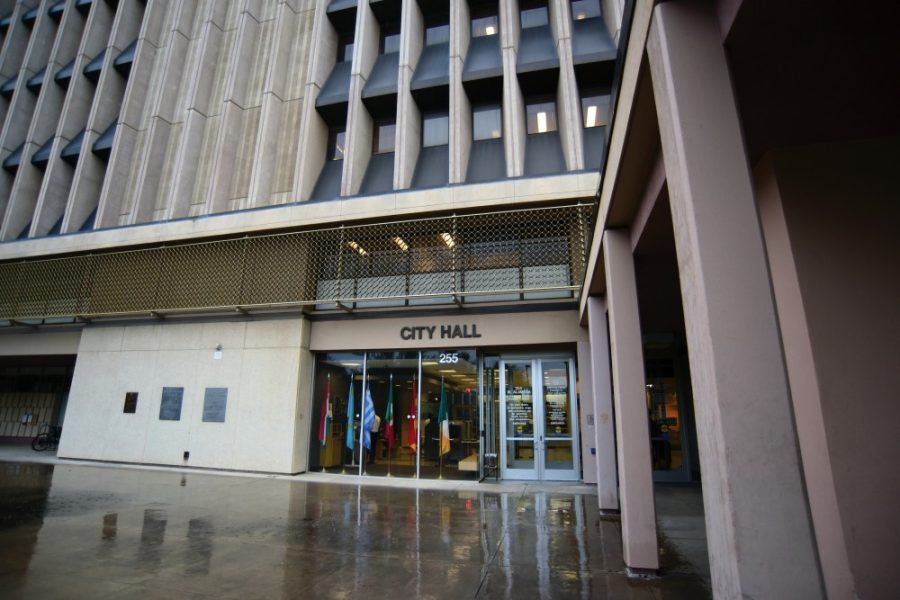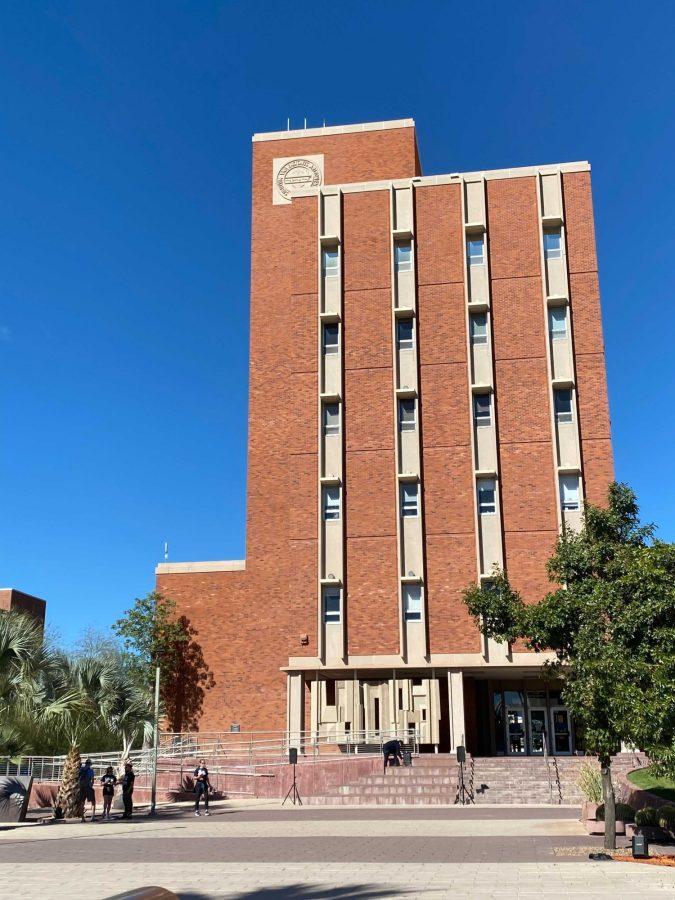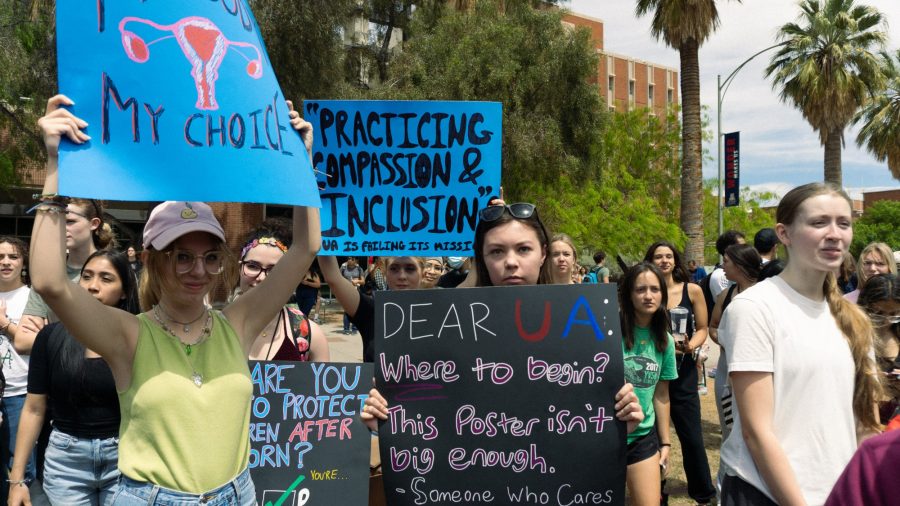Tucsonans will elect three of six city council seats and decide the fate of four propositions this Nov. 7.
Is this the first time you have heard about this local election? Well, the Daily Wildcat has you covered with a short description of all the candidates and propositions:
All voters, regardless of their ward, will decide the representatives from Ward 6, 5, 3 for the next four years.
Ward 6
Steve Kozachik: votestevek.com (Democrat since 2013)
Kozachik has served two terms as a city council member, one as a Republican and one as a Democrat. Kozachik also works as the associate director of athletics for facilities and project management at the University of Arizona.
Kozachik looks at running for reelection as reapplying for a job. He brings to the table his efforts to revitalize downtown and focus on education, gun safety and drug addiction.
Kozachik will not accept political donations due to his opinion on its corrupting influence, asking Tucsonans to instead consider donating their money to a local non-profit.
Mariano Rodriguez : rodriguez4tucson.com (Republican)
Born in Mexico City, Rodriguez immigrated to the U.S. at the age of 9 to live with his aunt and uncle, and he moved to Tucson in 1987, where he became a citizen.
Rodriguez said he wants the city to prioritize its spending on essential services and not increase taxes, which could be a detriment to attracting new businesses.
Rodriguez said he wants to address Tucson’s image of poor infrastructure, high taxes and high crime in order to attract more businesses and jobs to revitalize Tucson and lower poverty. Rodriguez advocates for hiring more police officers and taking care of roads.
Mike Cease: ceaseforcouncil.org (Green)
Cease won out a primary to be in the running for his first political office.
Cease said he wants to raise the minimum wage to $15, make Tucson a sanctuary city and bring green energy to Tucson to create jobs and conserve the environment.
The Daily Wildcat sat down with these three candidates from Ward 6, which borders the university, and asked them how their plans would impact UA students. Check out that story HERE.
Ward 5
Richard Fimbres: tucsonaz.gov/ward-5/richard-fimbres-bio (Democrat)
Fimbres has served two terms as a city councilman and will run unopposed for his third.
Before becoming a city council member, Fimbres served 32 years with the Pima County Sheriff’s Department.
Fimbres has worked closely with the Food Bank of Southern Arizona and has received Ohtli Recognition from the Mexican Government for his work with Mexican communities abroad. While in office, Fimbres has focused on bringing economic development to his Ward and the city.
Ward 3
Paul Durham: paulforprogress.com/about/ (Democrat)
Durham is new to politics, beating out two Democrats in a primary to run in his first race for city council.
Durham describes himself as “a solar energy advocate,” presenting a plan to run city government with 100 percent renewable energy by 2025, and wants to leverage his experience in business law to grow small businesses in the community.
If elected, Durham said he will work to improve Tucson’s infrastructure, such as its roads, and be an ally to its schools and neighborhood leaders in the fight to improve education and fight crime.
Gary Watson: watson4citycouncil.com (Independent)
Watson has served as a fire captain and wants to leverage his experience as a union president to represent the diverse Tucson community.
If elected, Watson said he wants to take a more regional approach to addressing Tucson’s challenges. He proposed a regional transportation plan to get more Pima County residents to Tucson’s businesses and cultural events.
Watson wants to focus on developing internship and apprentice programs to grow the skilled labor pool in Tucson, focusing on core services like public safety and infrastructure.
Along with these candidates, Tucsonans will also decide on a few ballot measures.
Prop 202 & 203
If both propositions pass, the Reid Park Zoo will collect the revenue from a 0.1 percent sales tax increase for the next 10 years. The estimated cost per taxpayer would be around $7.20 annually, according to the zoo’s website.
The proposition will go to fund infrastructure improvements to the zoo and help them put into action their ambitious Vision 2028 plan, according to the Reid Park Zoological Society.
“I do not think increasing the city sales tax, yet again, will be at all attractive to people who live here or people that potentially would consider living in our city,” John Dalton, Treasurer of Pima County Republican Party, wrote in opposition. Dalton said he believes the community should support the zoo through donations.
Prop 204
If passed, Tucson’s sales tax would increase 0.5 percent, with the revenue funneled into early-childhood education through the Strong Start Tucson program by a Mayor-appointed commission.
“The program will provide scholarships for 6,500–8,000 of Tucson’s 14,000 3- and 4-year-olds who cannot afford to attend high-quality preschool,” wrote Penelope Jacks of the Start Tucson Campaign Committee.
According to the Tucson Metro Chamber, this tax is not the best way to address preschool education. David Eppihimer, Chairman of Pima County Republican Party, argues this appointed board would not have any accountability, and there are concerns that this tax will not benefit low-income areas without certified centers and the money is needed more in K-12 education.
Prop 406
Proposed by the Citizens’ Commission on Public Service and Compensation, the proposition would raise the mayor’s salary from $3,500 per month to $5,775 per month, and a city council member’s salary from $2,000 per month to $3,300 per month.
The commission argues that passing the first salary increase since 1999 “will increase the diversity of qualified Tucson voters who are motivated to seek these positions” and not prohibit those of “modest financial means from seeking these positions.”
How to Vote
If you are a registered voter in Tucson, you can vote on Nov. 7 at your local polling place, which can be found here.
The deadline to send mail-in ballots has passed, but they can be dropped off at one of six polling stations here anytime before Election Day, or at any polling station on Nov. 7.









